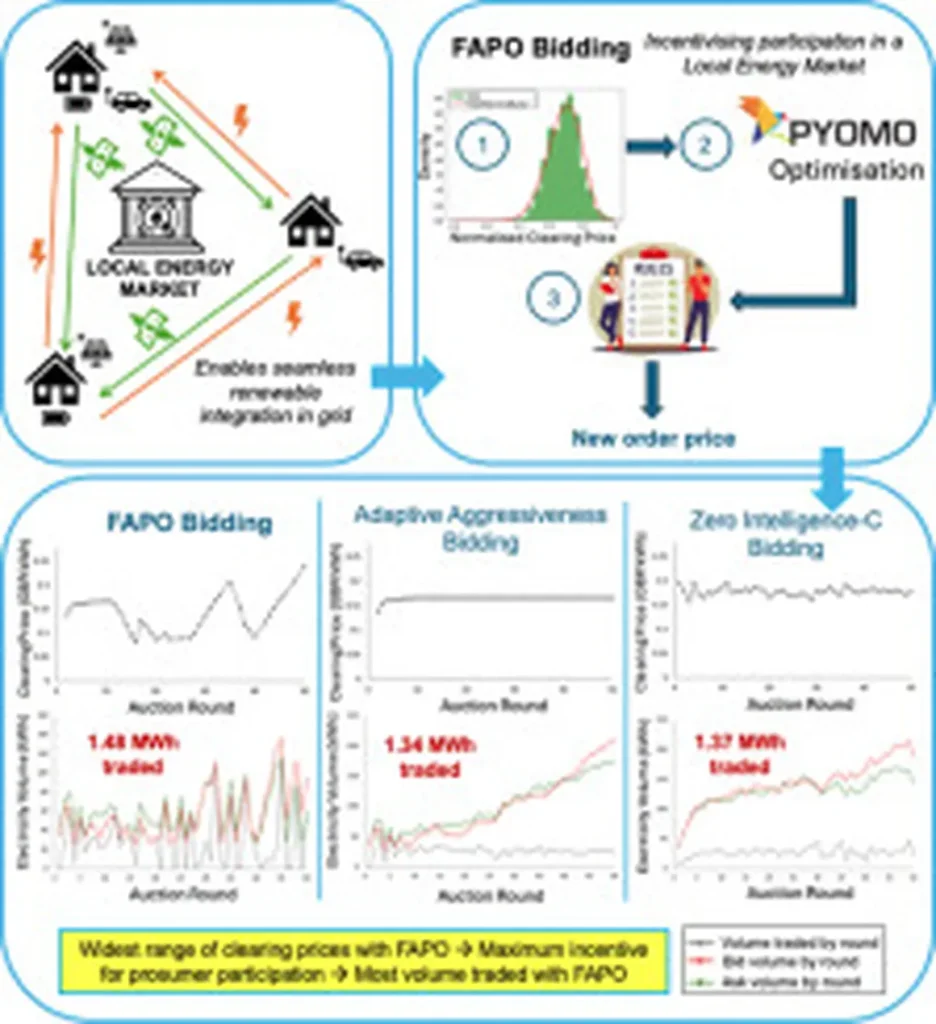In the quest for net-zero emissions, the integration of renewable energy sources into our electricity networks is paramount. A recent study published in the journal “Energy and Artificial Intelligence” introduces a novel bidding strategy that could revolutionize peer-to-peer (P2P) electricity trading, making it more attractive for prosumers—those who both produce and consume energy—to participate. The research, led by Ioanna Kalospyrou from the University of Sheffield’s School of Chemical, Materials and Biological Engineering, presents the Flexible Aggressiveness Probabilistic Optimisation (FAPO) bidding strategy, a method designed to maximize individual utilities and encourage greater participation in local energy markets.
Local energy markets serve as platforms for trading locally-generated renewable energy between prosumers within residential communities. However, their potential to facilitate the seamless incorporation of energy from distributed renewable resources is often underutilized due to lack of participation. “Prosumers are more likely to join a local energy market if financial incentives are offered,” Kalospyrou explains. “Our study addresses this by presenting a bidding strategy that maximizes participation incentives.”
The FAPO methodology was tested in a simplified local energy market simulation environment and compared to two other well-established bidding strategies: Zero Intelligence-Constrained and Adaptive Aggressiveness. The results were promising. FAPO achieved a wider range of clearing prices, incentivizing greater prosumer participation. Specifically, FAPO enabled the trading of 1.48 MWh of electricity, compared to 1.34 MWh with Adaptive Aggressiveness and 1.37 MWh with Zero Intelligence-Constrained. Moreover, FAPO cleared 100% of all asks and 98% of all bids, while the other two strategies cleared approximately 90% of submitted orders.
The implications for the energy sector are significant. By making P2P electricity trading more engaging and financially rewarding, FAPO could accelerate the uptake of local energy markets. This, in turn, could smooth the integration of distributed energy resources into the network, a critical step towards achieving net-zero emissions.
Kalospyrou’s research highlights the potential of intelligent agents and optimization techniques in shaping the future of energy markets. As the world transitions towards a more decentralized and renewable energy-powered grid, innovative strategies like FAPO could play a pivotal role in ensuring a smooth and equitable transition.
In the words of Kalospyrou, “This is critical for the successful acceptance, uptake, and widespread application of this financial market type.” With further development and real-world testing, FAPO could become a cornerstone of the energy markets of the future, driving us closer to a sustainable and net-zero future.

